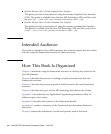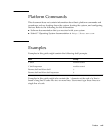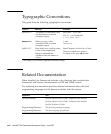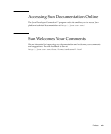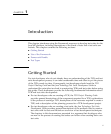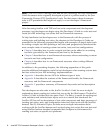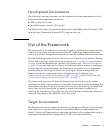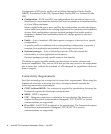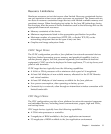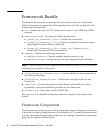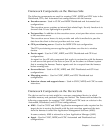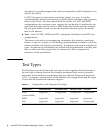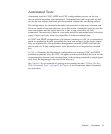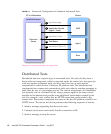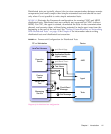
4 Java ME TCK Framework Developer’s Guide • July 2007
Configuration (CDC) and a profile such as Mobile Information Device Profile
(MIDP), Foundation Profile (FP), Personal Basis Profile (PBP), or Personal Profile
(PP).
■ Configuration - CLDC and CDC are configurations that provides a basic set of
libraries and virtual-machine features that must be present in an implementation
of a Java ME environment.
When coupled with one or more profiles, the configuration provides developers
with a stable Java platform for creating applications for consumer and embedded
devices. Each configuration supports optional packages that enable product
designers to balance the functionality needs of a design against its resource
constraints.
■ Profile - A set of standard APIs that support a category of devices for a specific
configuration.
A specific profile is combined with a corresponding configuration to provide a
complete Java application environment for the target device class.
■ Optional packages - A set of technology-specific APIs that extends the
functionality of a Java application environment.
Optional packages provide specific areas of functionality.
The ability to specify bundles enables test developers to match software and
hardware capabilities. They can use APIs that provide easy access to the components
that a device has, without the overhead of APIs designed for capabilities the device
doesn’t support.
Connectivity Requirements
Each Java technology has a unique set of connectivity requirements. When using the
Framework resources to develop test suites, developers should consider the
following connectivity requirements:
■ CLDC (without MIDP) - No connectivity required by specification; however, the
Framework requires bi-directional communication.
■ MIDP - HTTP is required.
■ CDC - Datagram connection is optional in the specification.The Framework
requires bi-directional communication (Datagram, TCP/IP, HTTP or custom
communications are supported).
■ FP on CDC - Full TCP/IP is optional in the specification. The Framework requires
bi-directional communication (Datagram, TCP/IP, HTTP or custom
communications are supported).



